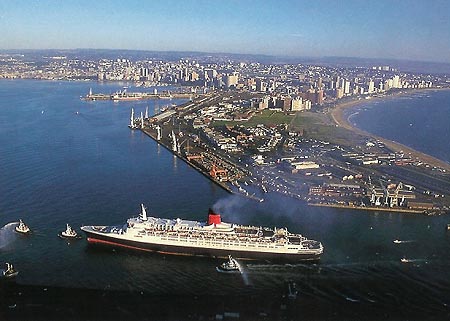The South African ports authority has asked the ports regulator to approve its application for an 8% tariff increase.
The Transnet National Ports Authority (TNPA) application was presented at a meeting in Port Elizabeth with a raft of developments, including news of the authority’s new “smart ports” strategy and key vessel acquisitions for Ngqura and Port Elizabeth.
The timeline for the new tank farm at Ngqura was also spelt out.
The meeting was hosted by the Ports Regulator of South Africa as part of a road show to ensure broad public participation in the assessment of the TNPA’s application.
The application for an overall 8% raise on tariffs for use of South African ports includes a13.25% “marine tariff” levied on shipping lines, which representatives said was prohibitively high considering the economic pressure on the industry.
TNPA chief financial officer Mohammed Abdul responded that while the authority was “not oblivious” to this situation, shipping companies had to “improve their contribution to the pie” to allow for the ports to function.
Aegean Bunkering Marine Services representative Kosta Argyros said that for overseas companies operating in dollars, the TNPA tariffs were not expensive.
But he called for an extension of the pilot discount incentive for South African vessels.
“With these vessels you know the money is staying here and there is employment of South African crews, so a discount makes sense,” Argyros said.
Responding to a question on how the tariff application could be justified against the TNPA ‘s stated 4.8% business growth rate, Abdul said the authority needed to sustain itself to be able to continue to deliver port services.
He said a smart ports strategy geared around joint operations centres (JOCs) was being rolled out through each of the country’s main harbours.
“Through all the different interface points, as a ship approaches port – from before the breakwater through to the quay, storage, offloading of cargo onto the train – there is currently a paper trail,” Abdul said.
“The aim is to automate this system and to install an integrated electronic port communication system.”
Port Elizabeth port manager Rajesh Dana said besides these smart port initiatives, other measures taken in the Bay harbour included a modern surveillance system and an under-keel clearance system to help guide ships more safely.
Port of Ngqura manager Mpumi Dweba said besides the JOC established in Port Elizabeth to oversee both ports, her team was looking to establish a dedicated centre at Ngqura.
The centre would be aimed at “de-bottlenecking” problems and improving offloading and turnaround times for berthed ships, she said.
Abdul said the Port Elizabeth Harbour had taken possession of two new tugs as part of a R1.45-billion deal to renew its tug fleet, as well as anew 90-ton boat hoist to assist with boat repairs.
Training schools had been established at ports around the country and in the Bay, with the focus on electrical and millwright apprenticeships.
Abdul said the finalization of a contract to build a new tank farm at Ngqura was imminent, and once the deal was signed the project would take two years to complete.
Copyright Ships & Ports Ltd. Permission to use quotations from this article is granted subject to appropriate credit given to www.shipsandports.com.ng as the source.

